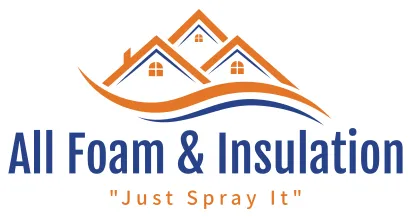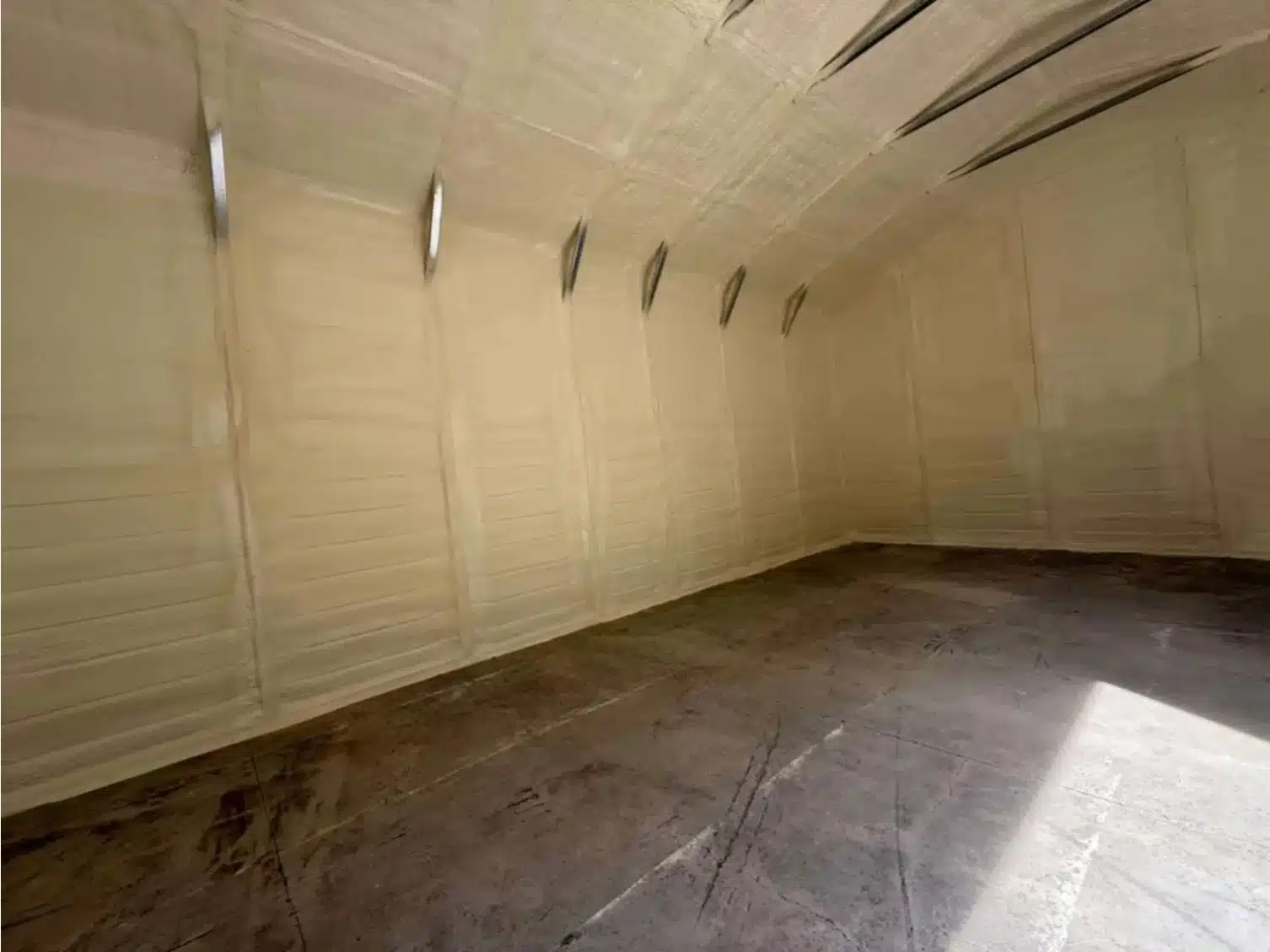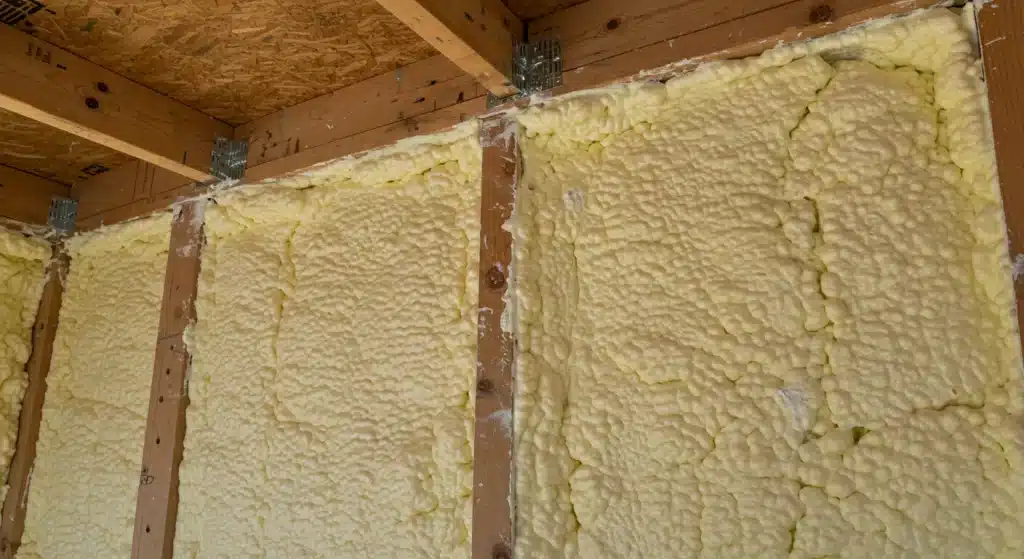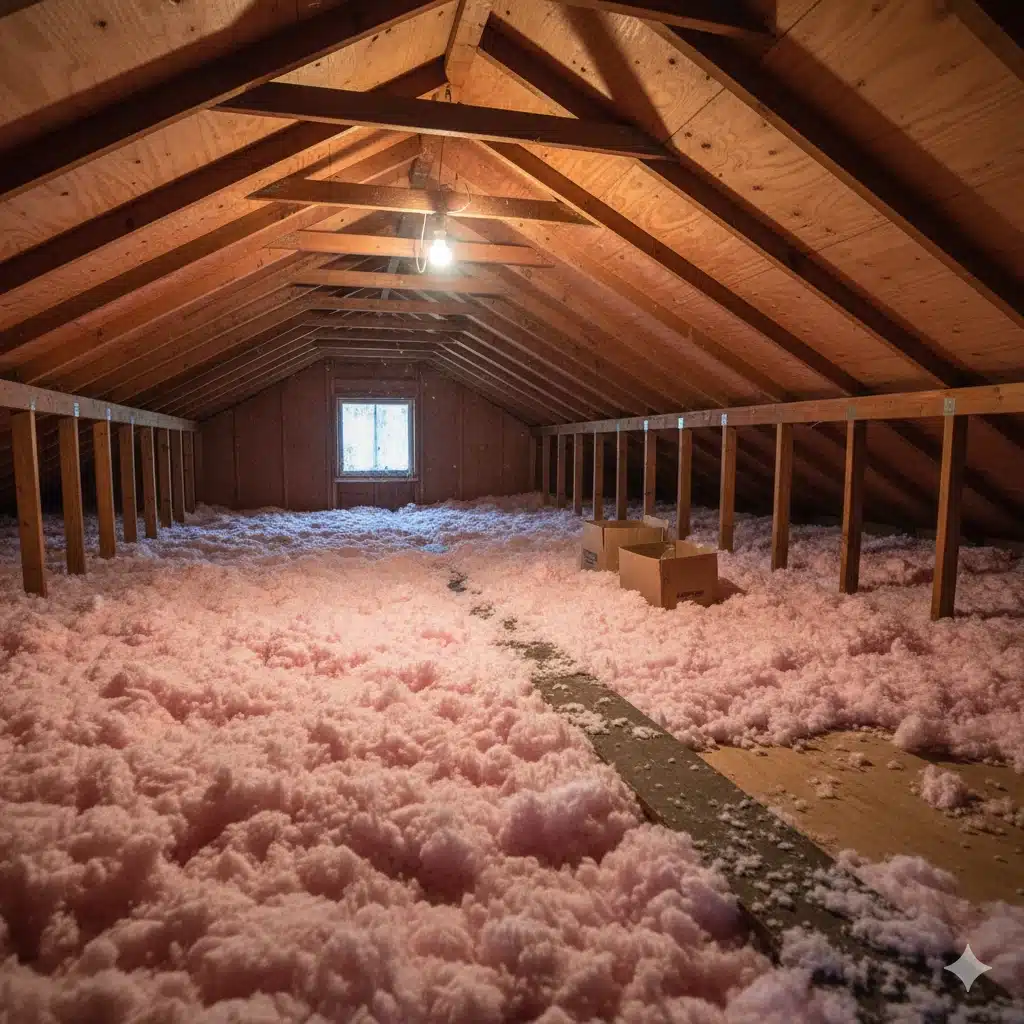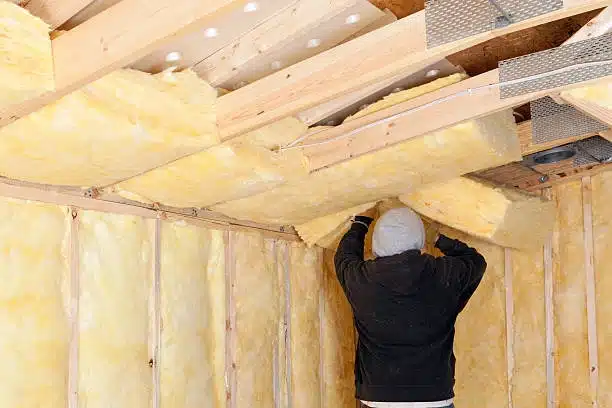Proper insulation makes a home feel more stable and secure by creating a consistent and controlled indoor environment. It achieves this by regulating temperature, managing moisture, reducing noise, and in some cases, even adding structural rigidity. In a coastal climate like Florence, where homes are exposed to moist air, high winds, and fluctuating temperatures, insulation acts as a protective layer. It prevents the subtle, long-term damage caused by moisture infiltration and reduces the stress on building materials from constant expansion and contraction. This leads to a structure that feels solid, quiet, and protected from the elements.
This article breaks down the specific ways insulation contributes to a home’s structural integrity and the owner’s peace of mind. The information comes from years of hands-on experience insulating homes along the Oregon coast and understanding the unique challenges of the local environment.
The Link Between Thermal Stability and Home Security
A key function of spray foam insulation in Florence is to create thermal stability. When a home maintains a consistent temperature, the building materials that form its structure, like wood studs, drywall, and siding, are not subjected to the stress of daily temperature swings. This constant expansion and contraction, even if microscopic, can lead to cracks, gaps, and weakened joints over time. A properly insulated home minimizes this effect, preserving the structural envelope and making the entire building feel more solid and unified.
In Florence, the damp, cool air can create persistent cold spots and drafts in under-insulated houses. These are more than just comfort issues; they are indicators that the home’s protective shell has been breached. Sealing these air leaks and installing adequate insulation stops this unwanted air exchange, eliminating the drafts that make a space feel insecure and exposed.
Bonus Tip: Before a major insulation project, use a lit incense stick on a windy day and carefully move it around window frames, door jambs, and electrical outlets. If the smoke wavers, you’ve found an air leak that needs sealing.
Moisture Control is Structural Control
The single biggest threat to a home’s stability in a coastal area is moisture. Wind-driven rain and humid air can force their way into a wall cavity, leading to serious problems. According to the Federal Emergency Management Agency (FEMA), moisture in building materials can lead to mold growth in as little as 24-48 hours. This not only affects air quality but also starts the process of rot, which can compromise the structural integrity of wood framing.
Certain types of insulation are exceptionally effective at managing moisture. Closed-cell spray foam, for instance, acts as a vapor barrier, preventing moisture from passing through it. When installed correctly, it creates a seamless seal that keeps damp, corrosive sea air out of the building’s structure. By preventing wood rot and mold, insulation directly preserves the materials holding the home together, ensuring its long-term stability and security.
Sound Dampening Creates a Quieter, More Private Space
A home that feels secure is often a home that feels quiet and private. Sound is a form of energy, and insulation is designed to resist energy transfer. This applies to thermal energy (heat) as well as acoustic energy (sound). Denser insulation materials are excellent at absorbing sound waves, reducing the noise that comes from outside.
This is particularly noticeable in Florence during winter storms or on windy days. A well-insulated home will significantly muffle the sound of wind and rain, creating a calm interior environment. This acoustic separation from the outside world contributes greatly to a feeling of safety and sanctuary. Different materials offer different levels of sound control, often measured by a Sound Transmission Class (STC) rating.
Insulation Materials Technical Comparison
| Insulation Type | Typical R-Value (per inch) | Moisture Resistance | Sound Dampening |
|---|---|---|---|
| Fiberglass Batts | 3.1 – 3.4 | Low (Can hold moisture) | Good |
| Blown-In Cellulose | 3.2 – 3.8 | Moderate (Treated) | Excellent |
| Open-Cell Spray Foam | 3.5 – 3.8 | Moderate (Allows drying) | Excellent |
| Closed-Cell Spray Foam | 6.0 – 7.0 | Excellent (Vapor barrier) | Very Good |
Things to Consider Before Upgrading Your Insulation
Making a decision about insulation involves more than just picking the highest R-value. Several factors should guide your choice to ensure the best outcome for your home’s stability and your comfort.
Your Home’s Existing Structure
Is your project a new build or a retrofit? For new construction or remodels with open walls, you have a wide range of options, including spray foam and perfectly fitted batts. For existing homes with closed walls, blown-in insulation is often the most practical solution for adding thermal resistance without major demolition.
Florence’s Specific Climate Needs
The U.S. Department of Energy places Florence in Marine Climate Zone 4C. Its recommendations published by ENERGY STAR suggest specific R-values for different parts of the home, such as R-49 to R-60 for attics and R-13 to R-15 for walls. Choosing insulation that meets or exceeds these guidelines is essential for performance in our local climate.
Ventilation and Air Quality
As you tighten a home’s envelope with insulation and air sealing, you reduce natural air exchange. This is great for energy efficiency but can trap indoor pollutants and moisture. It’s important to have a plan for mechanical ventilation, such as bathroom exhaust fans, a kitchen range hood, or a heat recovery ventilator (HRV), to ensure healthy indoor air quality.
Bonus Tip: An energy audit is a great first step. A professional can use tools like a blower door test to find exactly where your home is losing air and help you prioritize your sealing and insulation efforts for the biggest impact.
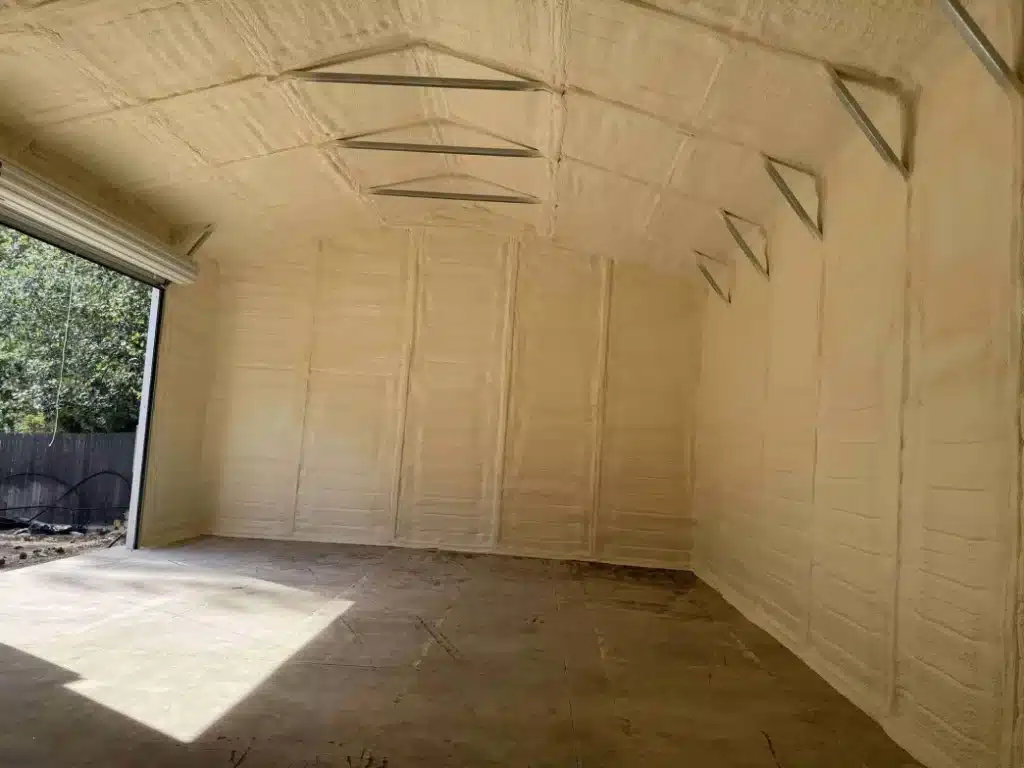
Frequently Asked Questions About Insulation in Florence Homes
What R-value is recommended for homes in Florence, OR?
For Florence’s Marine 4C climate zone, the general recommendation is R-49 in the attic, R-30 in floors over unheated spaces like a garage, and R-21 in walls. However, the exact amount can depend on the construction type and heating system.
Does insulation prevent pests?
Some insulation types offer pest resistance. Borate-treated cellulose insulation, for example, is a known deterrent for insects like cockroaches, ants, and termites. Additionally, rigid foam and spray foam insulations create a solid barrier that is difficult for pests to tunnel through, unlike fiberglass batts.
Can I install new insulation over my old, existing insulation?
In many cases, yes. If the existing insulation in your attic is in good condition (not damp, moldy, or compacted), you can add new unfaced insulation on top of it to reach the recommended R-value. However, if the old material is damaged, it should be removed before new insulation is installed.
How does insulation affect my home’s resale value?
Upgraded insulation is an attractive feature for potential buyers. It signals a well-maintained and energy-efficient home, which can translate to lower utility bills and greater comfort. A report from the National Association of Realtors often shows that insulation upgrades are among the projects with the highest return on investment at resale.
A Secure Home Starts Within Your Walls
The feeling of security in a home is built from many factors, and the physical stability of the structure is one of the most fundamental. By controlling temperature, blocking moisture, and dampening sound, proper insulation serves as a constant, silent guardian for your house. It protects the wood frame from rot, reduces stress on materials, and creates a peaceful living space shielded from the coastal weather. Evaluating your home’s insulation is a direct investment in its long-term health and your own comfort and security.
Get a Professional Assessment
Every home is different, and the right insulation strategy depends on your home’s age, construction, and specific needs. For a thorough evaluation and professional advice tailored to the Oregon coast, contact All Foam & Insulation, LLC. You can reach the team by phone at (541) 826-9600 or by email at [email protected] to discuss how to make your home more stable, secure, and comfortable.
Sources
- Federal Emergency Management Agency (FEMA) – Provides official information on the dangers of moisture and mold growth in homes after water exposure.
- ENERGY STAR – A program of the U.S. Environmental Protection Agency and the U.S. Department of Energy that provides R-value recommendations for different climate zones.
- National Association of Realtors – Publishes an annual Remodeling Impact Report that analyzes the cost recovery and resale value of various home improvement projects, including insulation upgrades.

